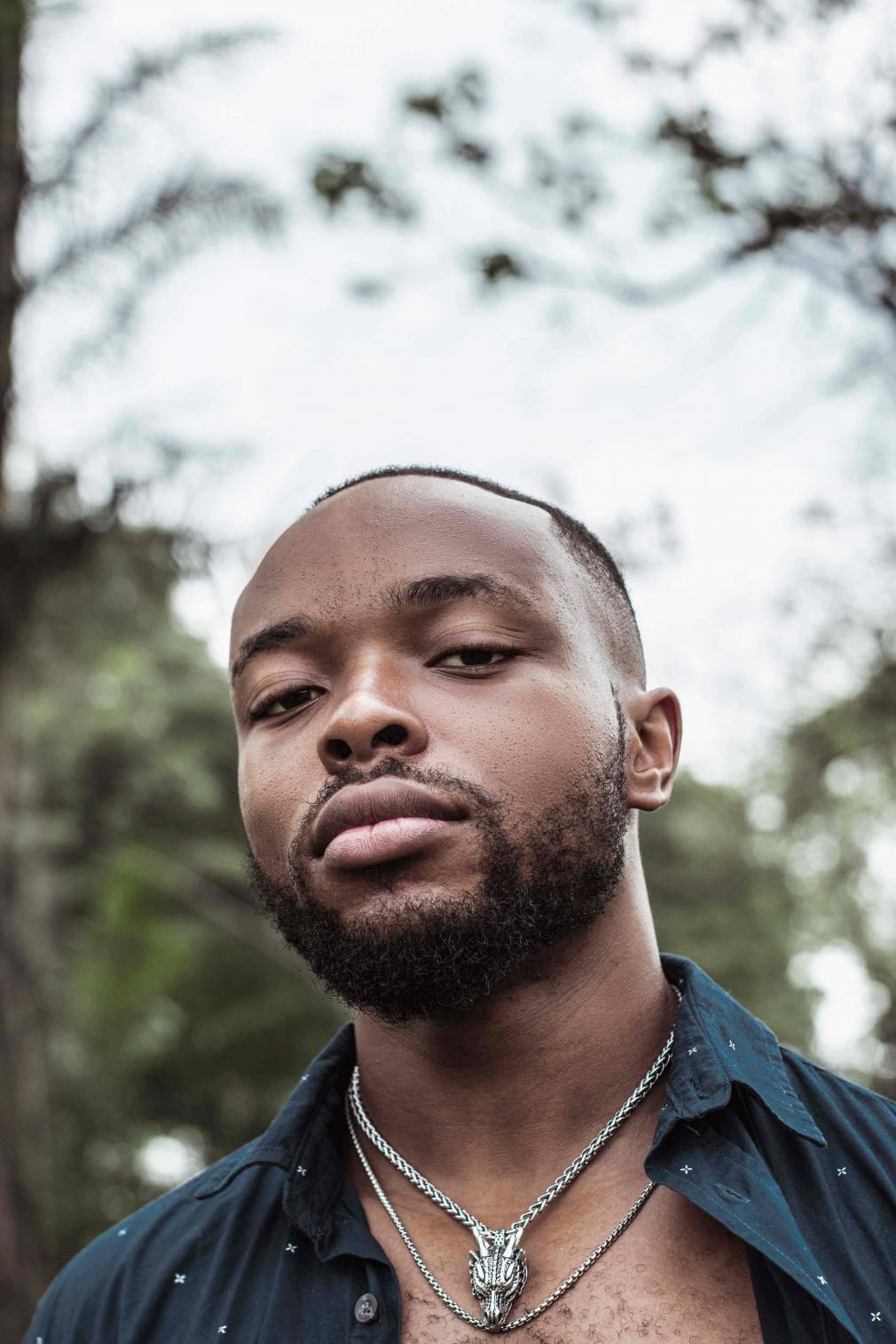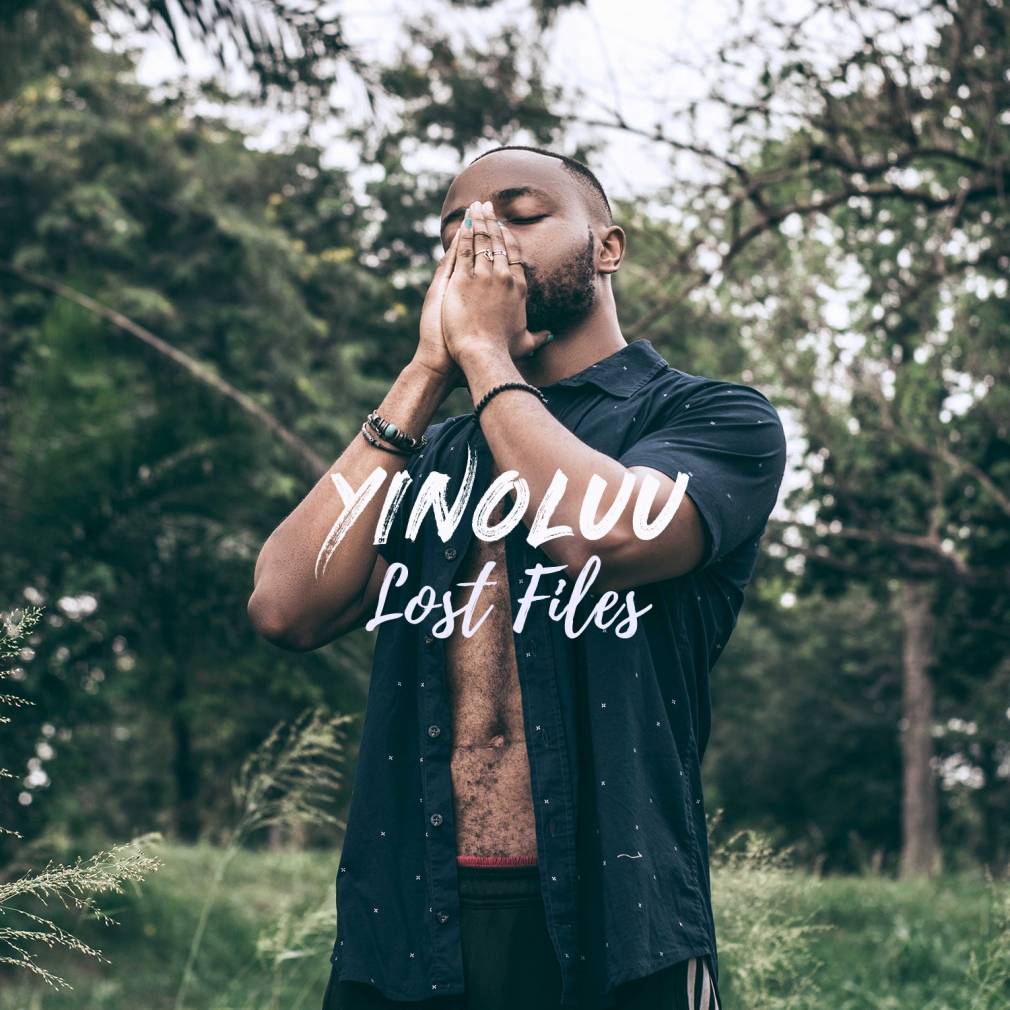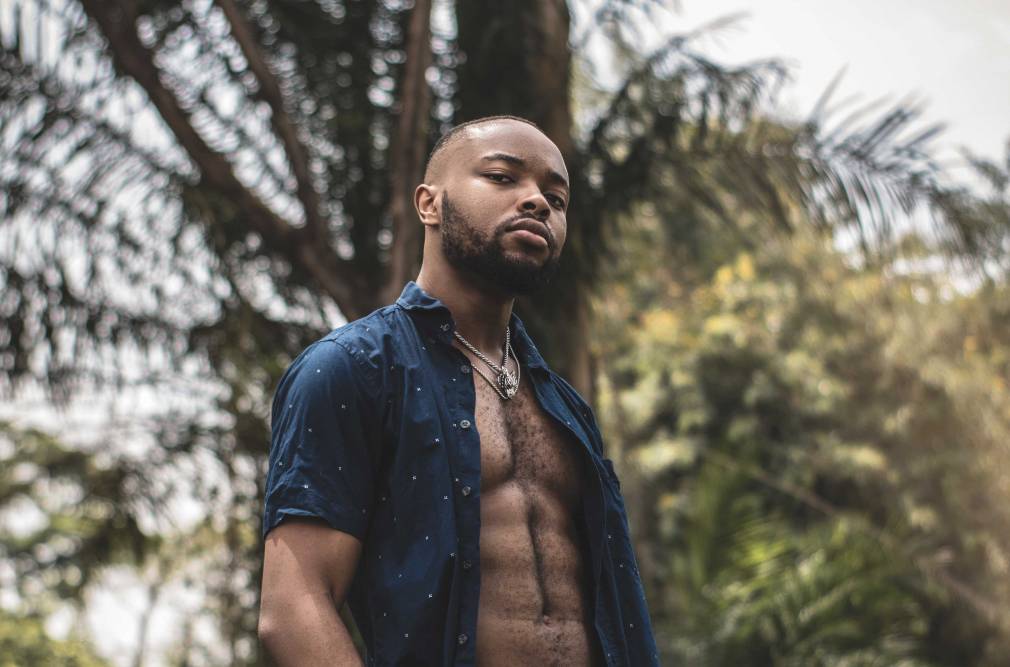Though Yinoluu may have spent time studying architecture in Ghana and Canada, the last 6 years the artist has been developing a prominent career in music to say the least. The beatmaker has collaborated with famous artists such as Odunsi, Amaarae, Teezee, Boj, Prettyboy D-O and many others. His work can be fitted in the “Alté” movement, an alternative Nigerian scene having an increasingly strong impact on West African youth. Alté artists are defined by a sound that’s rich with diverse influences, a certain look, and above all, a willingness to overturn norms they consider too conservative. These new leaders dare to openly talk about sex, display an androgynous appearance and demonstrate self-mockery in the tough and rigid Nigerian industry. Two years ago, Yinoluu produced “Alté Cruise”, the movement’s unofficial anthem, and put a name on this new trendy movement. He himself plays a role by producing instrumental beats for the singers of the genre, though he doesn’t limit himself to that alonet. Indeed, he is also known to have released instrumental projects without singers like DayDreamer (2019), an unusual approach in the Lagos megalopolis. The beatmaker almost lost his project Lost Files(May 2020) due to a technical tragedy and recently had his laptop stolen with all his music on it (a fund has been created to help him buy one back); nevertheless he agreed to answer our questions.
What are the main challenges faced by producers of your kind in Nigeria?
I think there is a bunch. One of the things is just respect. Producers get the short end of the stick a lot of the times. On a track, the artist is the focal point, he is the star, and the producer is just in the background, so sometimes there is a bit of a power imbalance when you are trying to work with an artist. There are a lot of great people out there but I’ve also worked with a couple of selfish artists. Sometimes you approach an artist with an idea, and they will be like “well I’m just going to take that idea and turn it into mine”.
Beyond that, a lot of Nigerian producers do get a decent amount of credit. A lot of people recognize that in many songs they like, the beat plays a big part. But it also takes a long time to get that recognition, to get to a point where you can actually leverage on your name. especially being a young producer. When I started there were a lot of older artists who felt like because I was young, they could take advantage of that.
The Alté scene is a bit better because we have almost created a family. Because we all got into music around the same time, there is a feeling of camaraderie. We all rise together and we rise by lifting each other. If you make a beat for someone and it does well, their profile is raised and yours as well. At the end of the day, the culture is known for having a unique sound. You can’t remove the contribution of the producer of that.
Do you think there is a place in the Nigerian industry for electronic solo producers?
I started with instrumental projects and I realized that instrumentals alone are a very niche space, even beyond Africa. There are a lot of channels on Youtube about chill hip-hop instrumentals, and I wanted to bring that to Africa, with like chill afrobeats instrumentals. The first time I did that and played it to a friend, halfway into the first song, she asked me when was the artist singing. So it’s going to take a while. From the solo producer angle, I think in Nigeria, there is a level you have to get to before you can release your own music. Lately it has been more popular. Sarz did that with WurlD, Mut4y from Legendury Beatz did it, E-Kelly did his as well… Its starting to look like something possible. But even then, I doubt it would work if you are a young producer, even if the music is really good. Sarz did an instrumental project but before he could do that, he had to be Sarz. He had to produce for over 10 years.

Do you recognize yourself as an Alté producer?
Honestly, I think so. The place my music comes from is in line with the general Alté stylings. Alté is a blend of influences. We grew up as Nigerians so there is already the Nigerian aesthetic in us, but then by exposure or experience we’ve also had other influences pulling into whatever we were doing. We are still making African stuff, but we are pulling influences from so many other places. Odunsi’s first project “Rare” is definitely influenced by Nigeria, but you can also hear the 80s/90s influences, you can hear the older afropop influences, it’s almost out of time. That’s how I would say my music comes about.
Do you think there is something common between all the artistes you have worked with?
Yea, I would say there is an openness to try new things. Because of the producer I am, a lot of times I send beats to artists and they are like “this is great to listen to but I have no idea of what to do with this”, or they just think it’s too weird. But I can send something really strange to Odunsi, and he will give it a try, he will know what to do. There is a willingness to test it out, to see what can come out of it, to experiment. I really appreciate it. And another thing is I think I learn from a lot from them. Because of that family thing we have, there is a lot of feedback and exchange of ideas. I’ve learned so much from artist who are also producers, like Odunsi or AYLØ. I send them a beat and they look at it from an artist and a producer perspective. I remember Odunsi telling me that my beats are sometimes too complex, too complete. That was a lesson I really took to heart, and I love to learn.
Is Alté only limited to music?
It goes really beyond music. It’s in fashion, lifestyle, filmmaking… I don’t want to call it a resurgence, but it’s a breath of fresh air, it’s a new wave. Things have been going a certain way for a while, and here’s a new path to take. And it cuts across so many elements. It’s fashion, streetwear, it’s the skate scene in Lagos, the music videos, the photography. It’s a completely different style of doing things, and its branching out into so much. You have photographers putting their own spin on the representation of the scene. You have fashion clothing the scene a different way with those new styles that were not present in Nigeria: goth influences, platform shoes, weird makeup, accessories, crazy hairstyle…. It’s new wave expressionism, and that’s my architect background speaking.
Reading your biography, we see how many artistic domains have inspired you throughout the years: cinema, drama, music, photography… What can you tell us about the access to art in Lagos?
Lagos is definitely art friendly. It’s a cultural hub: there’s so much happening in and out, you can always find something. Because of that, Lagos is also very open and appreciative of arts. Some of the most popular photographers in Nigeria are in Lagos. We have galleries, centres, art spaces… There is also a whole thriving theatre scene, music, fashion with the Lagos Fashion Week… The city is becoming a melting pot of different forms of expressions and because of that, even people from neighbouring regions or cities who wants to get noticed come to Lagos. There is just so much going on. It’s also kind of dangerous to have everything in one place so we see that people in other cities are trying to put their own place on the map, and that’s beautiful. There is Apex Village coming from Abuja with PsychoYP, there are the two brothers Veen and Kiienka trying to put Port Harcourt on the map… While Lagos is still the hotspot, I can see in the near future other cities putting their name out as well.
Your Lost Files EP is very far from the current popular Nigerian music. Aren’t you scared to lose a certain part of the Nigerian public?
I don’t think I can call my music pure afrobeats, or pure anything actually. One thing I’m trying to do with my music is to fuse elements. I really enjoy using different kind of styles. I might take a very soulful piano and chords, and then be like “hmm, what happens if I put afrobeats drums on this? Would it still be soul?” That’s been the idea I’ve been working with on the last couple of years. I also think I have been trying to challenge the artists I work with. When it’s my project and I’m featuring you, it’s my sound, and I hope to get your style on my sound. But I also want you to change your style a little bit. Take the song “You” with PsychoYP: a lot of people asked me how I got Psycho to get so romantic, when he is always in Trap. That’s what I’ve been wanting to do.
To answer your question, I think it’s good to experiment for your own artistic integrity. If you feel like creating, branching out, trying new things, I don’t think you should ever be scared of doing that. I think you should always stay true and make what you want to make. Yes, you might disconnect from some people but you might also inspire some people, because somewhere there is a kid who wants to make music and is scared because what he wants to create is different. But then here you are, showing him that it’s possible! And one good thing about the digital age is that if what you do is not resonating where you are, it might grab someone else’s attention. For example, my project “Day dreamer” has the majority of its streams in Ukraine and Brazil. I also think experimenting broadens the perspective of the traditional listener. People have been listening to hip-hop all their lives, and then the Alté scene shows them another way of doing hip-hop. In my case, I started music for myself. If other people listen to it, it’s great, but if they don’t like it it’s also great.
You said you want reach the world with your instrumental work. What can Nigeria bring to this genre?
When you listen to stuff South Africans have done with Gqom and South African house, people who don’t like instrumentals will like these instrumentals for sure. I think chill hip-hop really took off because people use it to study, people use it to chill… There is a bounce to it, and if you look at afrobeats, we have our own unique bounce as well. When you listen to it, something is moving in you. That is something the world can benefit of: how infectious our beats can be, how you have to move to it. I think it’s possible to do our music without a singer, and it could still be considered as afrobeats, you could notice the afrobeats in it.
You are also following Architecture studies. What do you think is having the biggest impact on Lagos right now: music or urban planning?
I think right now, Lagos still has a way to go with things like urban planning and architecture. We’re still babies, we can do way better. Those aren’t the best right now. However, I honestly think that entertainment is one of Nigeria’s biggest export in general. We have done pretty well. Lagos is known for its lifestyle. When tourist come it’s the nightlife, the food, before any infrastructure.
What can we expect from you in the future?
I’m starting to know the producer/artist I’m trying to be. I will still do a lot more productions for people, but I’m starting to understand there is different kind of me I want to test out. I’m going to establish a pattern: feature projects, and also instrumental projects. That was my first love and I don’t think I’m ever going to stop. There was also a lo-fi chill project I was working on before my laptop got stolen, and I will work on that again. There are a couple collaborative projects that thankfully were done and saved so we can still expect those. More crazy and hopefully weird music.
Lost Files by Yinoluu, out now.





